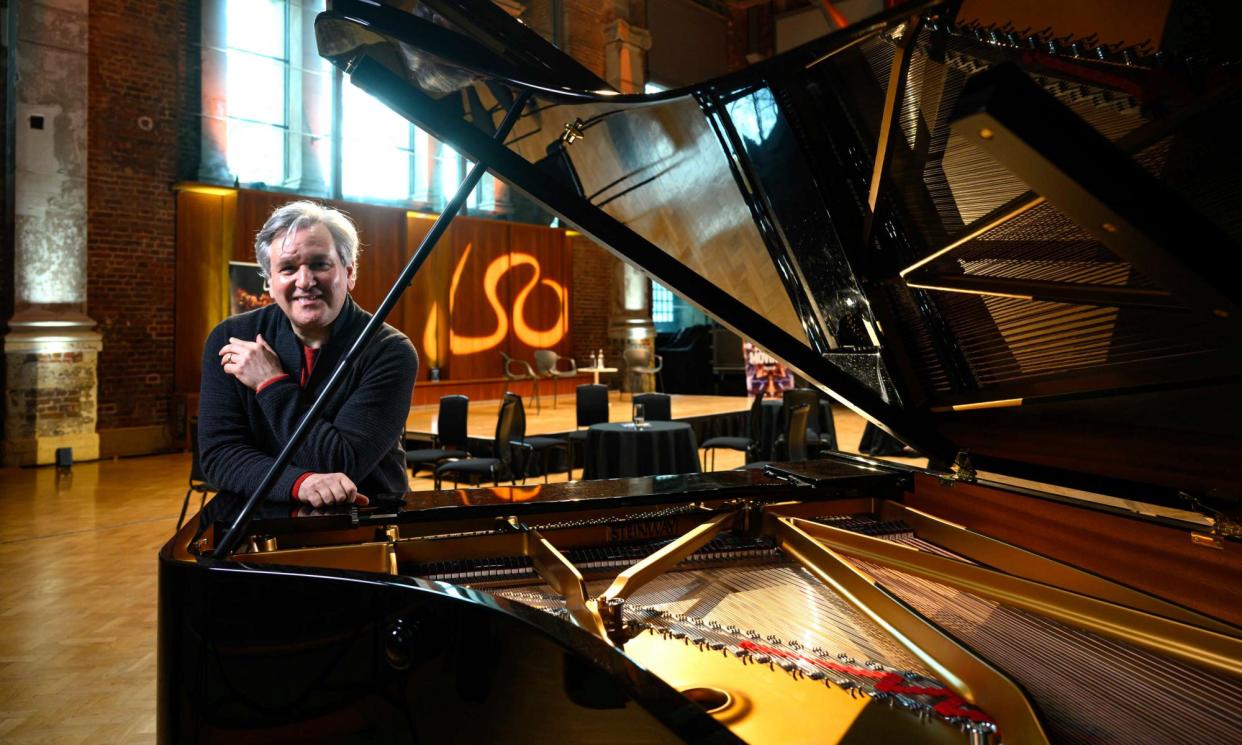British music, birthdays and building work: LSO announce first season under Pappano

The London Symphony Orchestra today announced its 2024-25 season, the orchestra’s first under its chief conductor Antonio Pappano. British music will dominate, with a new work by James MacMillan opening the season on 11 September and works by Bax, Elgar, Holst, Walton, Elizabeth Maconchy and Tippett threaded through the following nine months of concerts.
More of the UK’s greatest composers will feature in Conductor Emeritus Sir Simon Rattle’s two 70th birthday concerts in January 2025. Rattle will be joined by LSO Associate Artist Barbara Hannigan for the world premiere of George Benjamin’s Interludes and Aria from his opera Lessons in Love and Violence, and Mark-Anthony Turnage’s new guitar concerto will be performed by US jazz guitarist John Scofield.
In other LSO highlights, the orchestra will celebrate the music and legacy of Pierre Boulez in his centenary year in concerts led by Principal Guest Conductor Francois-Xavier Roth; while guest conductors include Klaus Mäkelä, Gustavo Dudamel, Susanna Malki and LSO Conductor Laureate Michael Tilson Thomas, who will conduct two performances of Mahler’s Symphony No 2.
As part of the wider Barbican classical music programme, Dudamel will also be at the venue in January, when he comes with the Simón Bolívar Symphony Orchestra of Venezuela to give two concerts, the orchestra’s first visit to the capital since 2016. His fellow Venezualan – another star product of its El Sistema music education programme – Rafael Payare brings his Orchestre symphonique de Montréal to the concert hall for a programme that includes Beethoven, Berlioz and the UK premiere of Iranian-Canadian composer Iman Habibi’s Jeder Baum spricht. John Wilson and his Sinfonia of London unite with cellist Sheku Kanneh-Mason to perform Shostakovich’s rarely heard Cello Concerto No 2, and pianists Piotr Anderszewski, Stephen Hough and cellist Yo-Yo Ma are among the musicians who will be performing solo or as a duo.
A new opera by Rolf Hind, Sky in a Small Cage – a poetic reflection of the life and works of Sufi poet Rumi – will open the Barbican’s season on 8 September. There will also be a semi-staging of M. Butterfly, David Henry Hwang’s Broadway smash hit play, with music by Huang Ruo and libretto by Hwang and a rare opportunity to hear Gorges Ocloo’s Ghanaian “AfrOpera”, The Golden Stool, which tells the story of the heroic woman who confronted colonial injustice in Ghana at the turn of the 20th century.
Other semi-staged opera in the Barbican hall will be under Pappano with the LSO performing Puccini’s La Rondine and Strauss’s Salome, neither of which he conducted while music director at the Royal Opera. Lithuanian soprano Asmik Grigorian will sing Salome, in what is sure to be one of the hottest tickets of the season.
Pappano spoke of his excitement about beginning his tenure as the LSO’s chief conductor. “I’ve been conducting this orchestra since 1996, and always harboured a secret dream that maybe one day I would be where I am today … When you step on the gas pedal with this orchestra there’s no other like it. Its energy and the omniferous appetite and ambition to bring music to life is something to behold!”
He lamented the difficulties the classical music industry has been facing these past months and that the Arts Council don’t seem to be able to cheerlead for it. Orchestras are increasingly finding themselves unable to focus on what must be their priority – making good work and performing it, he said. Every child needs to be exposed to music, he argued, but orchestras are finding themselves trying to make up for the lack of music education in schools. “People being exposed at a young age to music is a known enhancer of brain development. [But] it is not the LSO’s – or any orchestra’s – responsibility to educate children. It’s the government’s job to create not only the talent of the future but also audiences of the future.”
Meanwhile talent and audiences will continue to be developed by the LSO’s Discovery programme and young composers scheme. The latter is to benefit from a £2.5m endowment from The Helen Hamlyn Trust, and the former will be expanded and enhanced by a redevelopment of LSO St Luke’s, the Grade 1 listed church that 25 years ago was converted into a performance, rehearsal and recording space for the orchestra.
Of the £8m costs, 70% has already been pledged from the private sector, said managing director Kathryn McDowell. “Some work will be done in the main performing space to enhance the acoustics, but the main changes will be downstairs where the building will be updated and reconfigured with advanced state of the art sound and vision recording facilities, and new spaces for the orchestra’s education, early years, and community work.” Nothing drastic, though: “We love the building, but times change. Our needs today are different to those of 25 years ago.”
The large kitchen will be repurposed, likewise some of the current cafe space, disabled access will be improved, all the many metres of cabling that snake throughout the building will be embedded into the walls, and a more friendly front door is promised. By creating new spaces and making the existing ones more flexible they anticipate that 50% more people will be able to use the building and access the orchestra’s Discovery work, McDowell said.
Architects Levitt Bernstein, who carried out the award-winning transformation of the derelict and roofless church in 2003, will also be undertaking the development that is scheduled to put the building out of action for eight months from January 2025.

 Yahoo News
Yahoo News 
